Related Research Articles

Batman Forever is a 1995 American superhero film based on the DC Comics character Batman by Bob Kane and Bill Finger. It is the third installment of Warner Bros.' initial Batman film series and a sequel to Batman Returns. Directed by Joel Schumacher and produced by Tim Burton, it stars Val Kilmer as Bruce Wayne / Batman, replacing Michael Keaton, alongside Tommy Lee Jones, Jim Carrey, Nicole Kidman, and Chris O'Donnell. The film follows Batman as he attempts to prevent Two-Face and the Riddler from uncovering his secret identity and extracting information from the minds of Gotham City's residents, while at the same time navigating his feelings for psychologist Dr. Chase Meridian and adopting orphaned acrobat Dick Grayson—who becomes his partner, Robin.
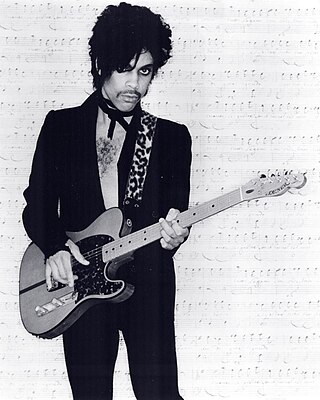
Prince Rogers Nelson was an American singer, multi-instrumentalist, songwriter, record producer, and actor. The recipient of numerous awards and nominations, he is regarded as one of the world's greatest musicians. He was known for his flamboyant, androgynous persona; his wide vocal range, which included a far-reaching falsetto and high-pitched screams; and his skill as a multi-instrumentalist, often preferring to play all or most of the instruments on his recordings. His music incorporated a wide variety of styles, including funk, R&B, rock, new wave, soul, synth-pop, pop, jazz, blues, and hip hop. Prince produced his albums himself, pioneering the Minneapolis sound.
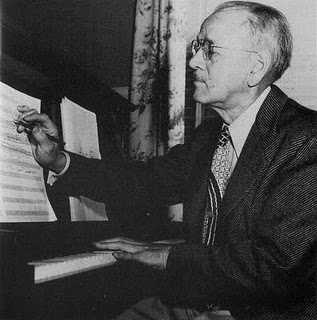
Carl William Stalling was an American composer, voice actor and arranger for music in animated films. He is most closely associated with the Looney Tunes and Merrie Melodies shorts produced by Warner Bros., where he averaged one complete score each week, for 22 years.
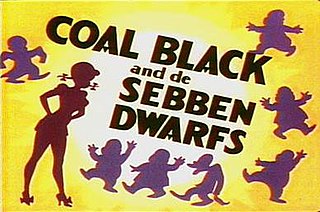
Coal Black and de Sebben Dwarfs is a 1943 Merrie Melodies animated cartoon directed by Bob Clampett. The short was released on January 16, 1943.

42nd Street is a 1933 American pre-Code musical film directed by Lloyd Bacon, with songs by Harry Warren (music) and Al Dubin (lyrics). The film's numbers were staged and choreographed by Busby Berkeley. It stars an ensemble cast of Warner Baxter, Bebe Daniels, George Brent, Ruby Keeler, Dick Powell and Ginger Rogers.
Casablanca Records is an American record label owned by Universal Music Group and operated under Republic Records. Under its founder Neil Bogart, Casablanca was most successful during the disco era of the mid to late 1970s. The label currently focuses on dance and electronic music under the direction of Brett Alperowitz.
Warner Records Inc. is an American record label. A subsidiary of the Warner Music Group, it is headquartered in Los Angeles, California. It was founded on March 19, 1958, as the recorded music division of the American film studio Warner Bros.

Happy Feet is a 2006 animated jukebox musical comedy film directed and produced by George Miller and written by Miller, John Collee, Judy Morris and Warren Coleman. It stars the voices of Elijah Wood, Robin Williams, Brittany Murphy, Hugh Jackman, Nicole Kidman, Hugo Weaving, Anthony LaPaglia, Magda Szubanski and Steve Irwin. An international co-production between the United States and Australia, the film was produced at Sydney-based visual effects and animation studio Animal Logic for Warner Bros. Pictures, Village Roadshow Pictures and Kingdom Feature Productions. It is the first animated film produced by Kennedy Miller and Animal Logic. Set in the cold land of Antarctica, the film follows Mumble (Wood), an emperor penguin who is able to tap dance brilliantly despite lacking the ability to sing a heartsong to attract a soulmate. After being continuously ridiculed and rejected by peers and his own father (Jackman), Mumble departs on a journey to learn what is causing the local fish population to decline — and to find himself along the way.

I Love to Singa is a 1936 Warner Bros. Merrie Melodies animated cartoon directed by Tex Avery. The short was released on July 18, 1936.

Prince was well known in the entertainment industry for having a vast body of work that remains unreleased. It has been said that his vault contains multiple unreleased albums and over 50 fully produced music videos that have never been released, along with albums and other media. The following is a list, in rough chronological order, of the most prominent of these unreleased works. Many were later released and circulated among collectors as bootlegs.

The Princess Bride is the fourth soundtrack album by British singer-songwriter and guitarist Mark Knopfler, released on 12 November 1987 by Vertigo Records internationally, and by Warner Bros. Records in the United States. The album contains music composed for the 1987 film The Princess Bride, directed by Rob Reiner. The album features the song "Storybook Love", written and performed by Willy DeVille and arranged by Mark Knopfler. In 1988, the song received an Academy Award nomination for Best Original Song.

Song of the Flame is a 1930 American pre-Code musical film photographed entirely in Technicolor. Based on the 1925 operetta of the same name, the film features a screenplay by Gordon Rigby adapted from the musical book written by Oscar Hammerstein II and Otto A. Harbach for the operetta. The movie also features many of the songs from the operetta which used lyrics by Hammerstein and Orbach and music by George Gershwin and Herbert Stothart. The film was produced and distributed by First National Pictures. It was the first color film to feature a widescreen sequence, using a process called Vitascope, the trademark name for Warner Bros.' widescreen process. The film, based on the 1925 Broadway musical of the same name, was nominated for an Academy Award for Sound Recording. It is part of the tradition of operetta films, popular at the time.

Say It with Songs is a 1929 American pre-Code musical drama film, directed by Lloyd Bacon and released by Warner Bros. The film stars Al Jolson and Davey Lee and was a follow-up to their previous film, The Singing Fool (1928).

Warner Chappell Music, Inc. is an American music publishing company and a subsidiary of the Warner Music Group. Warner Chappell Music's catalog consists of over 1.4 million compositions and 150,000 composers, with offices in over 40 countries.
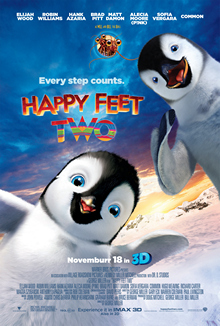
Happy Feet Two is a 2011 animated jukebox musical comedy film directed, produced and co-written by George Miller. It is the sequel to the 2006 film Happy Feet. It stars Elijah Wood, Robin Williams, Hank Azaria, Alecia Moore (P!nk), Brad Pitt, Matt Damon, Sofia Vergara, Common, Hugo Weaving, Richard Carter, Magda Szubanski and Anthony LaPaglia. Wood, Williams, Weaving, Szubanski and LaPaglia reprised their roles, with Moore and Common replacing the late Brittany Murphy and Fat Joe, respectively. In addition, E.G. Daily returned in different roles. In the film, Erik, the son of Mumble (Wood) and Gloria (Moore), and who is reluctant to dance, runs away from home and encounters the Mighty Sven (Azaria), a tufted puffin. When the penguins are trapped by a giant wall of ice and snow, they must save Antarctica.
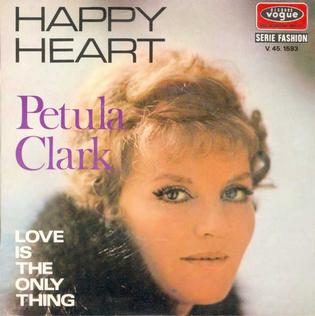
"Happy Heart" is a song written by James Last and Jackie Rae. Versions of the song by Petula Clark and Andy Williams charted simultaneously in 1969 and had their best showings on Billboard magazine's Easy Listening chart, where Clark peaked at number 12 and Williams spent two weeks at number 1.
Dear Heart is a 1964 American romantic-comedy film starring Glenn Ford and Geraldine Page as lonely middle-aged people who fall in love at a hotel convention. It was directed by Delbert Mann, from a screenplay by Tad Mosel. Its theme song "Dear Heart" was nominated for the Academy Award for Best Original Song.

Daffy's Rhapsody is a 2012 animated Looney Tunes short film featuring the characters Daffy Duck and Elmer Fudd. Directed by Matthew O'Callaghan and written by Tom Sheppard, the film is an adaptation of the song of the same name which was sung by Mel Blanc and recorded in the 1950s by Capitol Records. Daffy's Rhapsody was first shown in theaters before Warner Bros.' feature-length film Journey 2: The Mysterious Island. Unlike the previous Looney Tunes 3-D shorts, Daffy's Rhapsody has not yet been released on home media. In 2016, the official Warner Bros. Animation uploaded the short to Google but eventually removed it, leaving unofficial uploads of the short being available. It took until 2021 for the short to be officially available to purchase on Stars of Space Jam: Looney Tunes Collection.
Mark Goldenberg is an American guitarist and songwriter, noted for his session work and composition of successful songs for Linda Ronstadt, the Pointer Sisters, and others.
References
- ↑ "Happy Feet (Music from the Motion Picture) (2006, CD)". Discogs .
- 1 2 3 "Prince Returns to Hollywood With 'Happy Feet': 365 Prince Songs in a Year". Diffuser.fm. Retrieved 24 August 2018.
- ↑ [ dead link ]